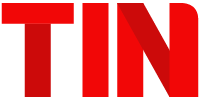The 2021 financial year was a momentous one for Fisher & Paykel Healthcare with demand for its respiratory products and systems soaring as the world battled the spread of COVID-19. Last year, more than 20 million patients around the world were treated using Fisher & Paykel Healthcare products.
After opening a fourth manufacturing facility in New Zealand last year to meet the growing demand, Fisher & Paykel Healthcare has further expanded its manufacturing capacity in 2021. Last year they hired more than 1,800 new employees and reported an increase in manufacturing output by more than six times for some key hospital products.

We’re looking forward to revealing where the company’s performance in 2021 has placed it on the TIN200 in the coming months, but in the meantime, we spoke with Fisher & Paykel Healthcare’s VP Corporate, Marcus Driller, to understand more about how they have achieved such massive success in the last year in the face of immense challenges.
We would point to three key factors that have enabled us to scale up and meet the demand for our products.
The first was preparation. The lessons we learned from SARS in 2003 and then MERS to a lesser extent in 2012 was that we should always carry additional excess capacity. We intentionally ran manufacturing lines 16 hours a day / 5 days a week prior to COVID which gave us the ability to move these lines to 24 hours a day, 7 days a week.
The second was our ability to quickly restructure and reorganise our business under nine separate workstreams, which were focused on keeping our people as safe as possible and protecting our ability to manufacture, supply, and train end users on essential respiratory support.
The third was a culture of trust that has been built up over more than 50 years. The fact that we were able to restructure and reorganise our business into the workstreams and add more than 1,800 people was only able to happen because individuals and teams came together to help each other out, without ego.
For our product manufacturing areas, we moved from individual recruitment to rapid assessment centres where we would assess and hire multiple people at a time. Our recruiting partners also helped provide temporary workers to help us meet the spike in demand and many of these temporary workers have become permanent full-time employees.
We believe we are seen as an attractive employer and that our people feel proud of the role that we have played in helping COVID patients around the world who have been admitted to hospitals.

Marcus Driller - Vice President Corporate
Throughout the pandemic, our global team have prioritised getting products to those patients who have most needed them. This meant that in some instances we needed to move some of our R&D team temporarily into projects focused on increasing our manufacturing capacity. These people reverted back to their R&D projects last year and, while there are some challenges around accessing hospitals to test and trial our new products, we continue to make great progress with our substantial new product pipeline.
Our purpose is to improve the care and outcomes for patients, and we have been doing that for more than 50 years. We were a successful, growing business before COVID, and we believe that will continue if we continue doing the best thing for patients.
If anything, the pandemic has brought more focused attention on respiratory health in general and specifically on our products used for nasal high flow therapy. There is now an increased installed base of our hardware, a lot more healthcare providers around the world are familiar with these products, and they are trained on how to use them.
If you asked all of our R&D teams, I’m sure they would each say to you that there are significant improvements that can be made to the products and therapies that are currently in use for the treatment of patients. Some would say that opportunities for innovation in healthcare are around big data, artificial intelligence, and robotics. We think about it another way – We ask, ‘What problems do these patients have, and what is the best solution to help address these problems?’ That is where true innovation happens.
We partner with New Zealand’s universities to create opportunities for the next generation of students who are pursuing careers in science, technology, engineering, and mathematics. Over the years our team has also spent many hours sharing our knowledge and lessons learned with other NZ health tech companies – whether that has been on quality and regulatory matters, sales strategy or intellectual property protection.
Share this Post

